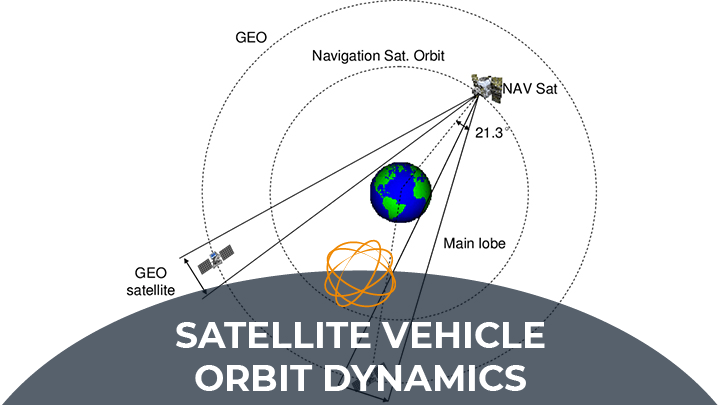Satellite Vehicle Orbit Dynamics Committee
Established: 2011
Chair: Bingbing Duan
Mailing List: IGS Satellite Vehicle Orbit Dynamics Committee Mailing List
Charter
Overview
Several groups and individuals within the IGS community are working on topics related to spacecraft orbit dynamics and attitude modelling. Recent progress in these areas show there is scope to improve the accuracy of the orbits and observable modelling through these studies that will be of direct benefit to IGS products and users. Moreover, given the emergence of new constellations the IGS will need spacecraft specific force and attitude models in order to fully exploit the availability of the new signals. The formation of the group will help formalise and coordinate the efforts of the individual groups in this area.
Definition of Tasks
- Solar radiation and thermal force effects: Develop physical models of solar radiation pressure and thermal re-radiation forces for all satellites tracked by the IGS; implement and test the models
- Earth radiation force effects: explore and assess sources of data for earth radiation flux modelling; develop accurate and/or compact models of earth radiation fluxes for both post- processing and predictive applications; develop enhanced methods for modelling the interaction of the radiation with the spacecraft structure/surfaces of all satellites tracked by the IGS; implement and test these models
- Antenna thrust: source information on the transmit power of all satellites tracked by the IGS; implement and test models of the resulting accelerations
- Given the enhanced physical modelling enabled by (1)-(3) the group will revisit the problem of proposing and assessing appropriate empirical/stochastic parameterisations required to account for the remaining force effects that we do not understand
- Satellite attitude behaviour: study and attempt to model the attitude behaviour of all satellites tracked by the IGS; implement and test models, disseminate guidance on implementation
- Develop a dialogue with spacecraft manufacturers and space agencies with a view to acquiring the optical and thermal properties as well as structural and attitude control algorithm data required for precision force modelling
- Provide a web repository of spacecraft data, force models, software, documentation and guidelines accessible to the entire community.
- Investigate the impact of the new modelling approaches on the terrestrial reference frame – seeking metrics that will validate the TRF changes in terms of accuracy and precision.Near term activities (within 6-8 months):
Provide models and documentation for the implementation of earth radiation pressure and antenna thrust modelling
Document and make available the GLONASS attitude model developed by Florian Dilssner and colleagues
Members
Chair
Other members selected from across the IGS depending only on their ability to contribute to the group’s aims
Membership
Chair: Bingbing Duan (TUM)
- Michael Moore (GA)
- Mohammad Ali Goudarzi (NRCan)
- Qile Zhao (WHU)
- Jan Dousa (GOP)
- Flavien Mercier (CNES)
- Tim Springer (PosiTim (@ESA/ESOC))
- Florian Dilssner (ESA/ESOC)
- Benjamin Männel (GFZ)
- Zhiguo Deng (GFZ)
- Rolf Dach (CODE)
- Ant Sibthorpe (JPL)
- Thomas Herring (MIT)
- Kevin Choi (NGS)
- Peng Fang (SIO)
- Sharyl Byram (USNO)
- Marek Ziebart (University College London)
Experts:
- Markus Rothacher (ETHZ)
- Urs Hugentobler (TUM)
- Peter Steigenberger (DLR)
- Satoshi Ikari (Uni Tokyo)
- Sebastian Strasser (TU Graz)
Observer:
- Paul Rebischung (IGN)
Last Updated on 6 Dec 2024 22:08 UTC


